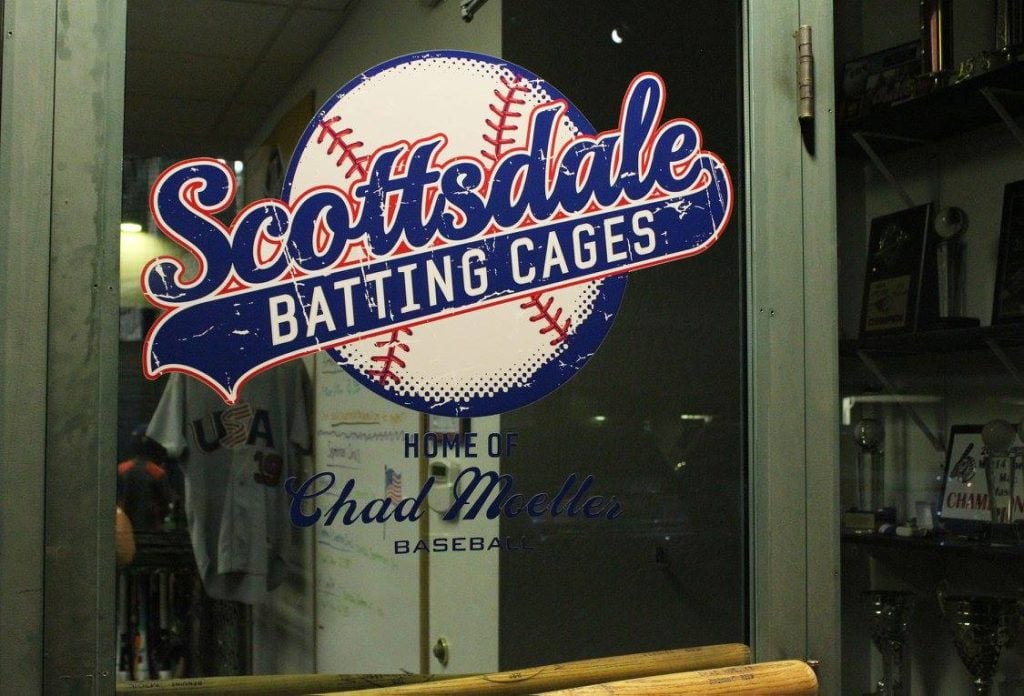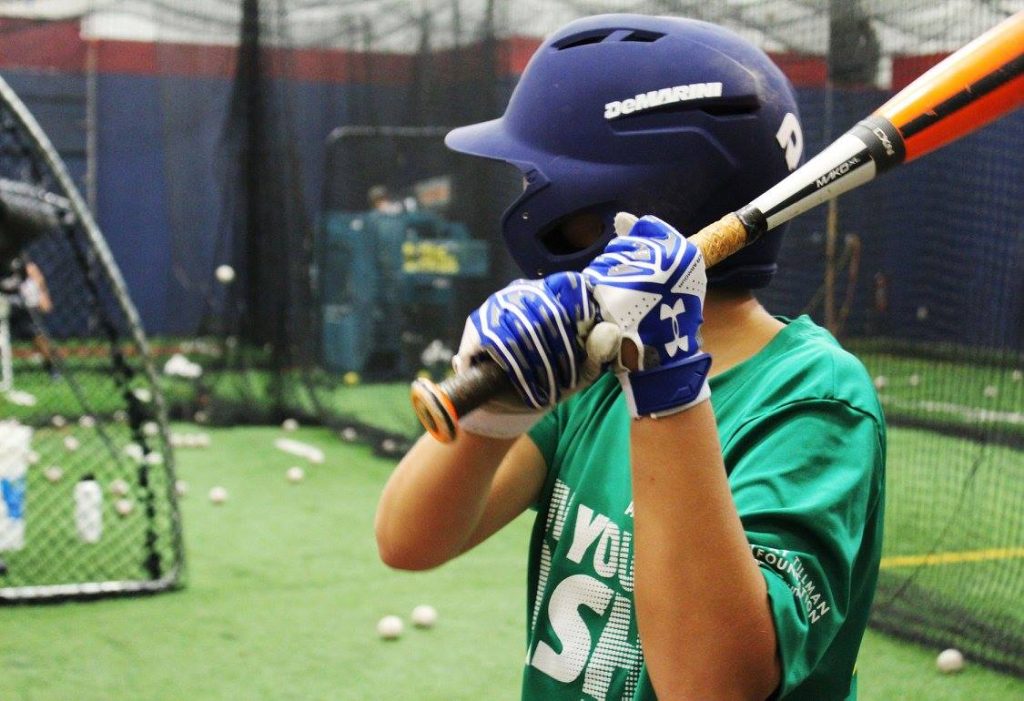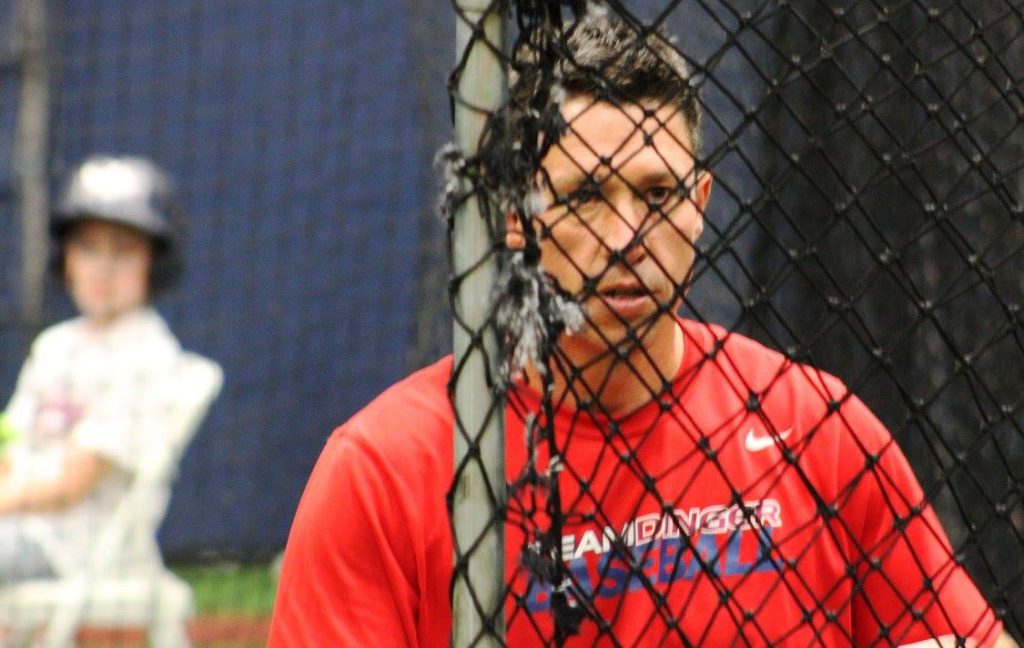SCOTTSDALE – Seven jerseys hang on the wall of the Scottsdale Batting Cages, home to Chad Moeller Baseball.
Moeller’s two favorites: his No. 16 jersey from the World Series champion Diamondbacks and his classically pinstriped Yankees jersey.
Moeller was a Diamondbacks rookie when he caught for superstar Randy Johnson in 2001, calling it the first time a team believed in him. Then, there was the 2008 season with the Yankees where he stood at first base in “The House That Ruth Built.”
Now, Moeller has moved on to mentoring the next generation of baseball players, including former NFL quarterback Tim Tebow.
“My plan wasn’t even to be on the field going back into baseball. It was to be more in the decision-making side and the evaluating side,” Moeller said. “Then, I realized that I actually have a passion for teaching.”
Moeller began renting out spaces to hold hitting clinics and other baseball classes for young athletes in 2011 before deciding to buy the Scottsdale Batting Cages facility in 2014.
“I realized I had no interest in going back to professional baseball,” said the former catcher, who left professional baseball in 2011.

Chad Moeller Baseball is located inside the Scottsdale Batting Cages. (Photo by Trisha Garcia/Cronkite News)
Developing Team Dinger
Instead, he founded Team Dinger, a string of seven club baseball teams with players as old as 15. The 11-year Major League veteran hosts hitting, catching and pitching clinics along with baseball camps and online video analysis.
“I started with the teaching part and wanting to get a message across that I didn’t have when I was younger. Nobody had told me certain things, taught me certain things,” Moeller said. “And then I realized that I actually could get through to kids in ways that parents can’t and ways that I couldn’t in pro ball and actually have an influence in their lives.”
Every Monday night, kids from Team Dinger shuffle into the Scottsdale Batting Cages to learn from Moeller or one of the other coaches on staff. They do warm-ups, workouts and all have one-on-one time in a batting cage with Moeller.

A young player takes batting practice in a cage with Chad Moeller. (Photo by Trisha Garcia/Cronkite News)
“My knowledge of the game and my baseball IQ is the thing that I’ve worked on the most here and something Chad has really helped me out with,” said 15-year-old Cole Gereb, who started training with Chad Moeller Baseball and the Dingers after playing Little League with Moeller’s son.
Chad Moeller Baseball tries to differentiate itself from other instructional baseball programs.
“Some of the other teams are focused on winning, rather than on player development,” said Michael Bronska, whose son, Aiden, was one of Moeller’s first clients.
Aiden started training with Chad Moeller Baseball when he was only 7 years old. His father is proud of the baseball player Aiden has developed into as a 12-year-old, and has made the Dingers organization a part of the Bronska family.
“As a player, Aiden has matured tremendously under Chad’s mentorship and under his instruction,” Bronska said. “He likes working with Chad. He loves working with a lot of other instructors within the organization. It’s more than just Chad, as much as it is the entire organization.”
In May, Moeller found himself working with a 28-year-old instead of young players. Tebow, through his agent, learned about Moeller’s work and came to Scottsdale to pursue his dream of playing Major League Baseball.
Moeller crunched his training methods into three months before Tebow, who hadn’t played baseball since he was in high school, held his Major League showcase in August. Tebow signed a minor-league contract with the New York Mets earlier this month.
“[Tebow] had trust in me the first day, which meant a lot to me, because he doesn’t know me from anybody,” Moeller said. “He’s just trusting that I’m going to be the right answer for him to make this move in an industry that he hasn’t done and he’s gonna trust that what I tell him to do is right and that was a little humbling.”
Not a Mentor
Now that he’s been coaching [athletes] for six years, Moeller appreciates the relationships he’s built with the kids on his teams, but hates being called their mentor.
For Moeller, the rapport between a coach and an athlete gives the game and his job purpose.
“There’s different parts that really start to help me as far as growing more as a person and as a coach, and it’s those relationships that really do it,” Moeller said. “The baseball part, I mean, that’s never really going to change.”

Chad Moeller throws batting practice during a Team Dinger workout.(Photo by Trisha Garcia/Cronkite News)
Team Dinger’s Evan Kelley said his three years with Chad Moeller Baseball have been about the environment as much as the baseball experience.
“He’s really interactive with his kids,” Evan, 14, said. “He really knows how to cheer them up if they’re down and he knows how to talk to them right and teach them whatever they need to know.”
Moeller’s coach-athlete relationships give him the sense that what he is doing matters beyond an improved batting average or a college recommendation letter.
“I want to see some of these kids start playing for me when they’re 10 or 11, and I want to see them graduate from high school,” Moeller said. “I want to see these kids make this full spectrum of growing up and knowing that I’ve been able to have an impact that is incredibly important for me.”
Life after baseball is a teaching point for Moeller, who graduated from Upland High School in Southern California before attending USC as an economics major.
He works with approximately 1,500 athletes between his clinics, lessons and teams. Moeller is familiar with the odds of any of those players being drafted and making a Major League roster.
“You’re going to be a former baseball player longer than (you were) a current baseball player,” Moeller said. “No matter what, baseball ends, or whatever sport it is ends at some point … so that’s the goal, use baseball to teach them life lessons.”